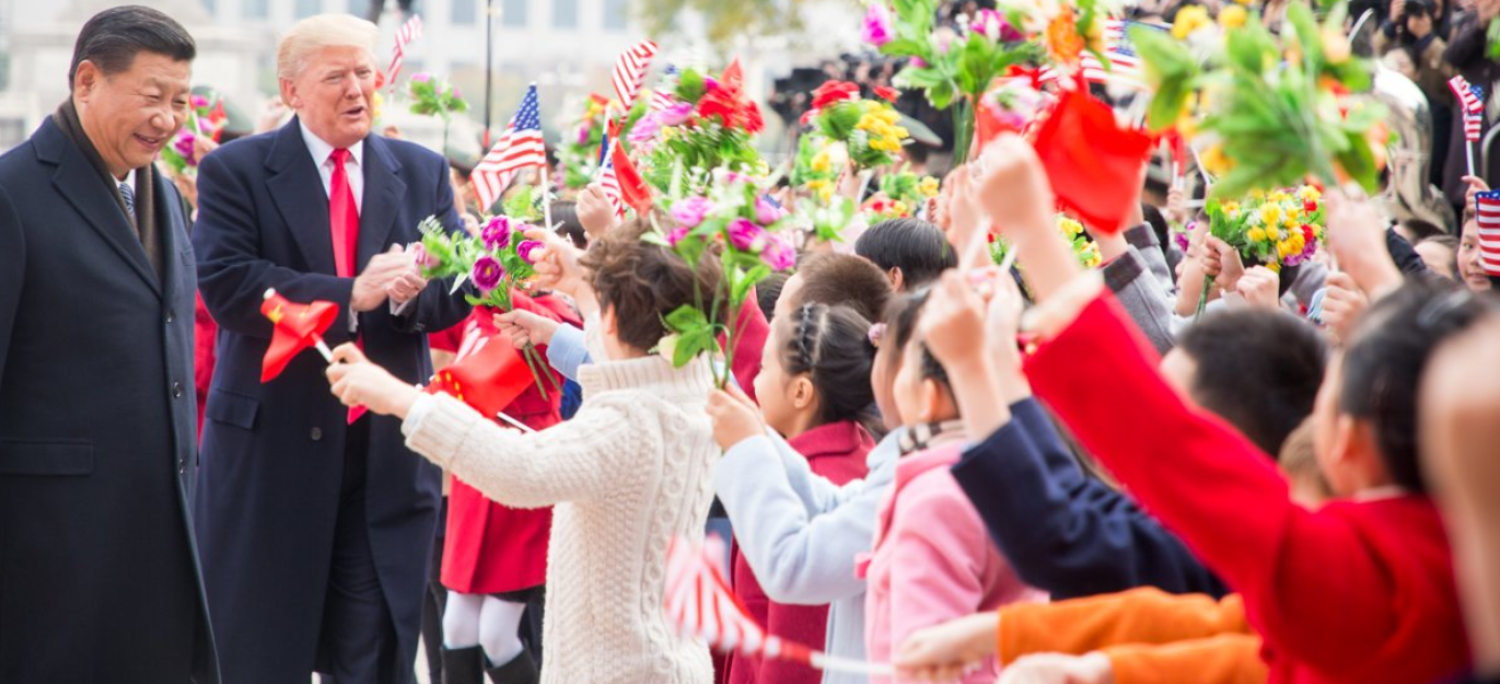The bullish US President has finally visited China. No doubt, as he watched the city swish past in his motorcade, he must have looked appreciatively at the Beijing skyline and imagined how good a Trump tower would look in among all the other splendid modern skyscrapers being thrown up there. But for this visit, Trump's fabled commercial instincts had to be suppressed. While it is known that the Chinese have discreetly, and assiduously, looked after the direct and indirect interests of companies bearing his name or linked to his networks, the script for this particular visit had him down as leader of the US, and that was the role in which he had to perform.
Diplomats know well that no one can do the theatre of a grand visit quite like the Chinese. And for a president who has been accused of being all about spectacle over substance, this was the ultimate dream visit. Large parts of the city of over 10 million people remained closed down as he moved around it. Xi Jinping, ranked the most powerful man in the world by The Economist only last month, spent a whole day of precious time usually allotted to running a country of 1.4 billion people showing the visiting dignitary and his wife around the Forbidden Palace, watching a Beijing Opera with him, and observing Mr Trump’s granddaughter on an iPad singing a song in Chinese.
Spectacle and symbolism do matter in politics at this level. No one denies that. There is a good argument to say that, in fact, spectacle and symbolism are all that matter. So one immediate assessment of the whole visit was that if it did no major good, it certainly did no harm. And there were plenty who feared that such an insensitive, narcissistic figure as Trump, exposed to a culture with its own pride and sensitivities, had the capacity to cause real damage and give real offence.
In no small part due to the very accurate Chinese reading of the US President and his character, this didn’t happen. On the contrary, he looked most of the time overwhelmed by the spectacle laid out before him, and the heavy clues it gave him that he and the country he represents still matter. Trump repaid this by not once mentioning human rights, and largely emitting paeans of praise of this hosts. Remarkably, he even refrained from blaming China for one of his main criticisms when he was a presidential candidate, instead shifting the blame for bilateral trade imbalances onto his predecessors. No wonder Xi Jinping’s face was broad with smiles during the stay. Even on complex issues like North Korea, Trump was largely amenable. This was that rarest of rare things: a high-level visit between the two most powerful countries in the world entirely without mishap.
There is, however, the delicate matter of what precisely this visit achieved. President Obama’s state visit in 2009 was largely seen as being mishandled by the Chinese. It was full of unfortunate incidents, from Obama's failure to meet any members of the Chinese public, to the odd ways in which his presence in China seemed to be downgraded. Despite this, a huge communique of joint actions and proposals was issued.
For Trump, the expectation was that he was going to doing something real about trade. The US$600 billion plus flows of goods between the two countries each year is overwhelmingly in China’s favour. Trump fixated on this as candidate. US companies in the services sector continue to get a poor deal in terms of market access in the country. China’s mastery of assymetrical deals remains unparalleled.
To the simple question of whether the Trump visit has done anything to really address these core concerns, the answer has to be highly qualified. Yes, a massive collection of deals coming to a reported US$250 billion was reportedly signed. But these announcements remain a staple of Chinese visits, and there is healthy scepticism about what they really mean. This is not new. A decade-and-a-half ago, in his book The China Dream, Joe Studwell was deconstructing these big-figure announcements and showing how meagre they sometimes turn out to be.
Will this visit result in what Trump most needs: good quality jobs created from direct Chinese investment back home, a more balanced trade relationship, and access on more equal terms to the Chinese domestic economy with its potential for services growth? Even if the outcome is good, it will take a while to see. And one wonders whether Trump would ever notice. The Chinese delivered a masterful display of pure spectacle, ego flattery, and diplomatic theatre to one of the most conceited, self-obsessed people on the planet. It was almost like they had created this whole tradition of diplomatic theatre for the sole purpose of dealing with such a president.
China's diplomats can sit back, well happy that, whatever it may mean for Making America Great Again, the November 2017 visit contributed handsomely to their priority: Making China even greater. Game, set and, quite possibly match, to Beijing.

